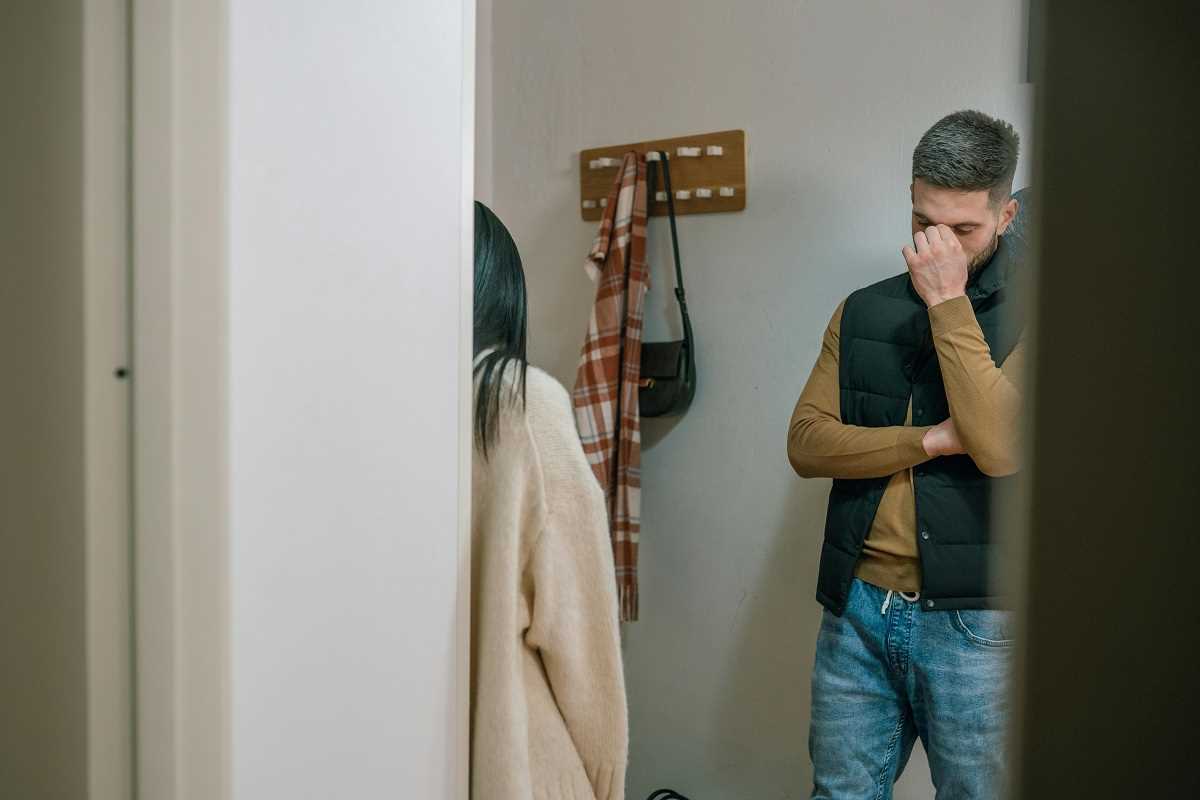Infidelity is one of the most painful challenges a relationship can face. It can shatter trust, upend emotional security, and leave you questioning everything. If you’ve noticed odd changes in your partner’s behavior or feel a lingering sense that something isn’t right, it’s natural for your mind to wander toward suspicions of cheating.
But it’s important to approach this topic with care. There’s no single behavior that definitively proves someone is unfaithful. Many signs that are associated with cheating could also stem from stress, work, or personal challenges unrelated to your relationship. That said, if you’re seeing multiple red flags, it might be worth taking a closer look. Here are 10 common signs that your partner may be cheating.
1. They Become Emotionally Distant
One of the first signs of trouble is an emotional disconnect. If your once-attentive partner now seems distracted or less interested in sharing their thoughts and feelings, it could be a symptom of deeper issues. People who are emotionally invested elsewhere often pull back from their primary relationship, leaving you feeling like a spectator in their life.
For instance, you might notice that they no longer confide in you about their day or value your input as much as they once did. While many factors can cause emotional distance, it’s worth paying attention if this shift feels sudden or unexplained.
2. Changes in Communication Patterns
Has your partner’s communication style changed dramatically? Maybe they’ve stopped responding to your messages promptly, they avoid meaningful conversations, or their tone has grown sharp or defensive. Alternatively, they may start overcommunicating, bombarding you with updates to disguise their actual whereabouts.
Cheating often disrupts normal communication, either because they feel guilty and withdraw or because they’re funneling energy into another connection.
3. Increased Secrecy
Secrecy can be a big red flag, especially if your partner suddenly becomes overly protective of their devices or private spaces. Examples might include:
- Locking their phone after years of openness.
- Hiding their screen when texting or browsing.
- Refusing to say where they’ve been or who they’ve been with.
This behavior doesn’t automatically mean they’re cheating, but it does suggest they’re hiding something. Even if it’s not infidelity, ignoring secrecy erodes trust over time.
4. Unexplained Schedule Changes
A partner who’s cheating often has to juggle schedules to see the other person, leading to unexplained changes in routines. You might notice they have new excuses for coming home late from work, frequent “last-minute plans,” or errands that seem to take much longer than they should.
While jobs or genuine commitments can keep someone busy, repeated vagueness about their activities can signal trouble.
5. Shifts in Physical Intimacy
A change in physical intimacy can be one of the most noticeable signs of infidelity. This usually appears in one of two ways:
- Decreased Intimacy: They may seem uninterested or even avoid physical affection, often because their focus is elsewhere or they feel guilty.
- Overcompensation: On the flip side, some people might increase intimacy to cover their tracks or alleviate guilt.
Of course, shifts in intimacy can result from stress, health issues, or other non-relationship-related factors. It’s essential to discuss this change openly to understand its root cause.
6. Unexplained Expenses
Cheating often leaves a financial trail. If your partner is spending money in unusual ways, it could be worth exploring further. Look for red flags like:
- Mysterious charges on credit card statements.
- Increased ATM withdrawals without explanation.
- Hotel, restaurant, or gift purchases that don’t seem to match your shared plans.
Again, be cautious when interpreting finances. Misunderstandings about money are common and don’t always point to infidelity.
7. A Sudden Interest in Their Appearance
If your partner suddenly becomes very invested in their appearance, it might signal they’re trying to impress someone else. For example, they might:
- Start working out obsessively.
- Buy new clothes in styles they’ve never been interested in before.
- Overhaul their grooming habits without discussing the change with you.
Although self-improvement is a healthy individual goal, pairing an image makeover with other suspicious behaviors may raise questions.
8. They Pick Unnecessary Fights
If your partner frequently picks fights or criticizes you for no good reason, it could be a way of creating emotional distance. Sometimes, people who cheat use arguments to justify their behavior, convincing themselves that the relationship was already failing.
For example, they may nitpick things they never had an issue with before or blow minor disagreements out of proportion to make you seem “difficult.” This tactic is often a subconscious way of deflecting guilt.
9. A Gut Feeling That Something Is Off
Sometimes, your instincts can pick up on subtle cues that your conscious mind hasn’t processed yet. If you consistently feel uneasy around your partner or sense they’re not being honest, trust your gut enough to explore where those feelings are coming from.
Remember, though, that a “gut feeling” isn’t definitive proof. Feelings of insecurity or anxiety can come from within you rather than from your partner’s actions. Always try to separate subjective fears from an objective review of their behavior.
10. They Seem Happier While Distant
One of the most painful signs of potential infidelity is noticing your partner seems happier or more energized in ways that exclude you. They might act less stressed, more cheerful, or generally “lighter,” but they don’t attribute it to anything happening in your relationship.
This combination of detachment and increased happiness can feel confusing. While it’s not proof, it’s worth a conversation to understand where these feelings are coming from.
How to Approach the Situation
If these signs resonate with your situation, it’s important to tackle your concerns maturely and empathetically. Accusations and confrontations are unlikely to yield constructive results. Instead, focus on open communication.
1. Start With an Honest Conversation
Share your feelings calmly and without blame. Use “I” statements to express how you’ve been feeling. For example:
- “I feel like we’ve been more distant lately, and I’m wondering why that is.”
- “I noticed that you’ve been really protective of your phone, and it makes me feel uneasy.”
By addressing the behavior instead of throwing accusations, you create an opportunity for dialogue rather than defensiveness.
2. Ask Questions, But Don’t Interrogate
Give your partner the chance to explain any behaviors that seem suspicious. Ask questions to clarify but avoid turning the conversation into an interrogation.
3. Respect Their Response
If your partner denies cheating, consider their tone, body language, and history before jumping to conclusions. If the relationship feels worth saving, you can suggest ways to rebuild trust going forward.
4. Seek Professional Help if Necessary
If suspicion or mistrust lingers, it might be worth attending couples therapy to address these issues in a safe, mediated environment. Therapists can help identify whether the core problem stems from infidelity or other challenges within the relationship.
Spotting potential signs of cheating can be an emotional and overwhelming process. Keep in mind that no one behavior definitively proves infidelity, and jumping to conclusions can harm your relationship unnecessarily. Instead, use these signs as starting points to open up communication and address underlying concerns.
 (Image source: Midjourney)
(Image source: Midjourney) 





